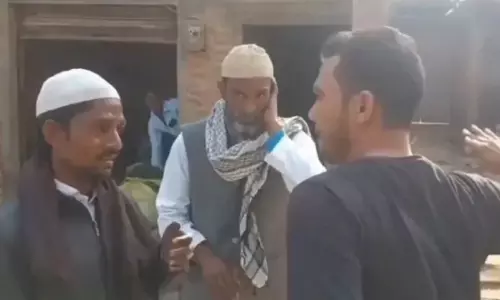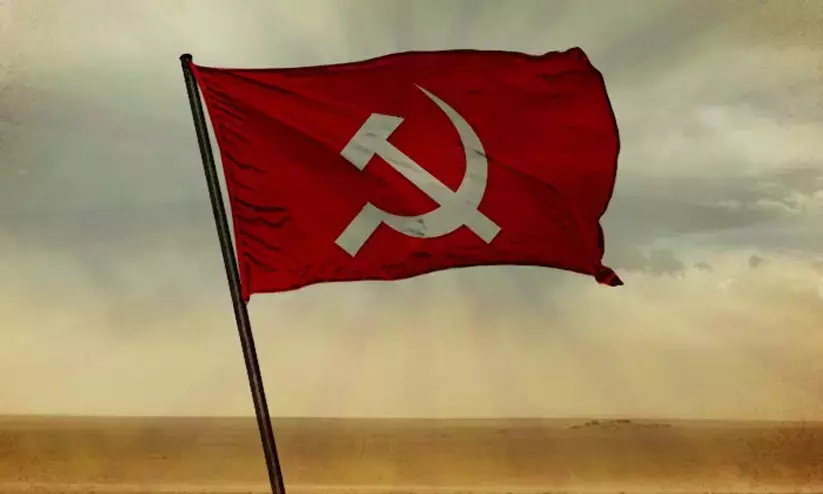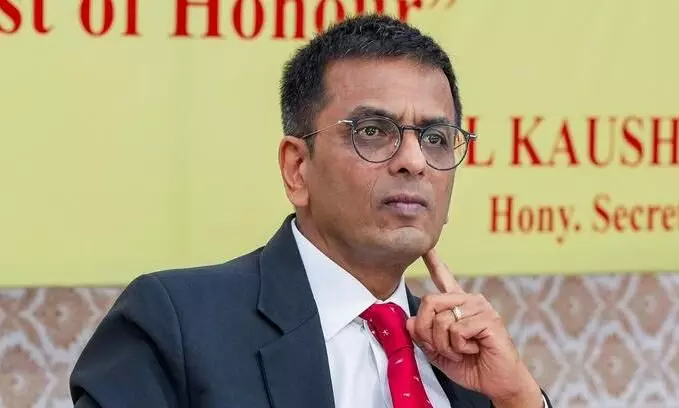
Rise above differences in quest for justice: CJI tells lawyers, judges
text_fieldsHyderabad : Chief Justice of India Justice D.Y. Chandrachud on Wednesday called upon lawyers and judges to rise above the differences, which social media exacerbates between people, in the quest for justice.
Speaking after laying the foundation stone for the new Telangana High Court complex, coming up adjacent to the Prof Jayashankar Telangana State Agriculture University at Rajendranagar here, the CJI pointed out that lawyers belong to different ideologies, different regions, come from different cultural backgrounds, and belong to different religions.
"But the most important thing that marks out all of us lawyers is the great syncretic tradition in India which is that in the work that we do, we rise above our birthmarks which define our existence. Our birthmarks are our reason for existence but as lawyers and as judges who come from the bar, we rise above those birthmarks in the sense that our identity is universal identity which is the quest for justice in the framework of the Constitution governed by the rule of law," he said.
"In the world around us, as we find so many differences, I think technology and social media exacerbate those differences between people but something that stands out within our institution is our universality, our ability to stand with each other and our ability to pursue a common quest for justice. That is truly the hallmark of the judiciary and of the bar which is one of the richest tributaries of the judiciary in our country," he added.
The CJI noted that the high court is a public space for the contestation of ideas, values, rights, duties and obligations and above all, it represents the supremacy of the judiciary.
"The High Court represents not only a public space for contestation but also represents a public space where reason, dialogue and the art of persuasion and traditions are still valued,” he said.
He termed the new High Court building a watershed in the history of Telangana.
"The dignity with which judges work and lawyers can work defines the dignity of the institution itself," he observed.
Recalling that he, as the administrative judge, worked in many district courts, he said many district courts lacked even a common washroom for young women and young women judges.
Citing the report on the state of the Indian judiciary recently put out by the Supreme Court through the Centre of Research and Planning, he said that reports show and demonstrate a significant deficit in infrastructure not merely in district judiciary but in high courts as well.
"Our judges must have a sense of belonging. They must have a sense of self-worth and lawyers must have a sense of self-worth. Creating new chambers for lawyers, creation of areas where judges and lawyers can interact, areas where young members of the bar are trained are crucial to the evolution of the institution of judiciary," he said.
CJI Chandrachud also asserted that public spaces often reflect pre-existing social inequalities in society and called for creating new infrastructure intended to reach out to the broader cross-section of society. He observed that the creation of infrastructure plays a significant role in the mainstreaming of communities and groups in society who have been traditionally excluded from the judicial process.
"We must all remember that public spaces often reflect pre-existing social inequalities in our society. Our infrastructure sometimes reflects subtle signs of exclusion, such as lack of washrooms for women, which I referred to earlier, ramps for the disabled or differently-abled, creches and lactating rooms for young mothers," he said.
The CJI said though India is a fast-growing economy and market, today there is an internet divide in the country even now as not everyone has access to the internet, not every lawyer has access to a smartphone, and not every citizen has a laptop.
He also digitally launched 32 eSewa kendras of the district judiciary of Telangana.
Supreme Court judges Justice P.S. Narasimha, Justice P.V. Sanjay Kumar, and Justice S.V. Bhatti and Telangana High Court's Chief Justice of Justice Alok Aradhe attended the event.
Maharashtra, which has 48 Lok Sabha seats, the second highest after Uttar Pradesh (80), will vote in five phases starting from April 19.
IANS with edits























